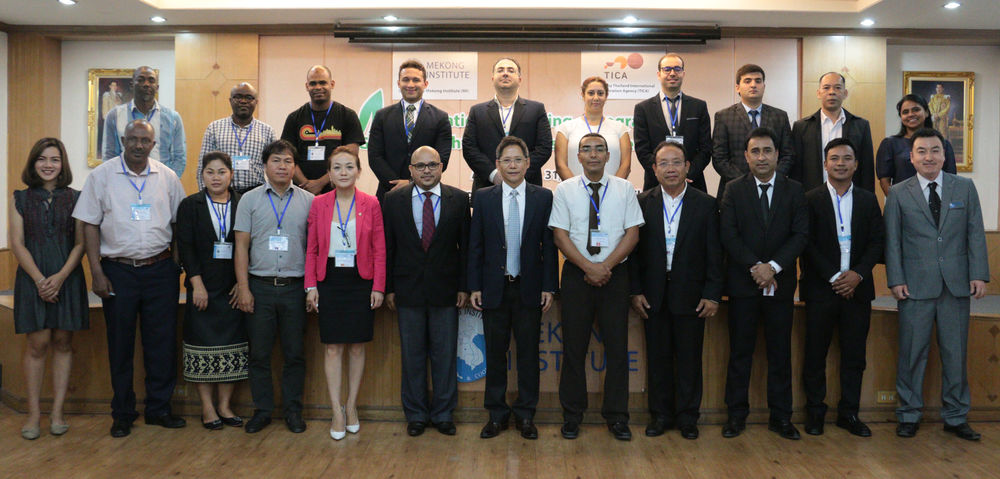Mekong Institute (MI) opens today the International Training on Green Freight and Logistics Development. The two-week training program is being held at the MI Residential Training Center until August 29, 2018 and will also involve a structured learning visit in Bangkok on August 30-31.
The training program, which aims to promote awareness of the importance of sustainable practices in the transport and logistics industry, brings together 19 participants from various countries spanning three continents: Burundi, Cambodia, Egypt, Ethiopia, Iran, Jordan, Kyrgyz Republic, Lao PDR, Madagascar, Malawi, Morocco, Panama, Sri Lanka, Tajikistan, Tanzania, Tunisia and Zambia.
Addressing the participants who come mostly from key relevant government agencies, MI Executive Director Dr. Watcharas Leelawath stressed the value of the knowledge to be gained from the training course. “With capacity building, we want to also push forward for policy change. We have to make the real change by linking with the policymaker so they are informed of good policy and strategy options…As you come from the government sector, then you are one of the instruments to make this change happen.”
He also added that the training serves as an excellent opportunity to likewise learn the good practices of the private sector. He explained that the private sector is the growth engine of the economy and if the logistics industry grows, then business and employment will also prosper. “There are multiple benefits from the change in the policy,” he remarked.
Mr. Madhurjya Kumar Dutta, Director of the Trade Investment and Facilitation (TIF) Department, also stressed the importance of “green”, which remains at the core of the training program. He explained that with globalization and the increase in cross-country investments, there is also a heightened demand in transport and logistics. Such demand, he noted, constitutes about 40-60 percent of the freight in the road transport sector. “This is also one of the major contributors in the carbon emissions…Transport and logistics is a crucial issue then, and in fact it features in at least 11 of the 17 Sustainable Development Goals. It is an important area for us to contribute through different activities. Training is one of these areas,” he explained.
MI and international and regional experts from the Greater Mekong Sub-region will be providing their technical expertise on the six modules to be covered in the training including (1) introduction to green logistics; (2) green freight certification process; (3) preparing companies for green logistics; (4) policy and consumer awareness; (5) e-logistics in supply chain management; and (6) the role of the government in promoting green logistics. As part of the SLV, the participants will be visiting Lat Krabang Inland Container Depot and Bangkok Port.








